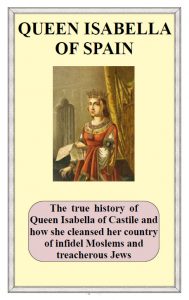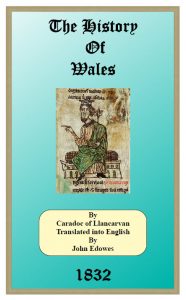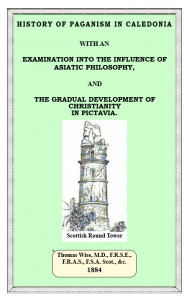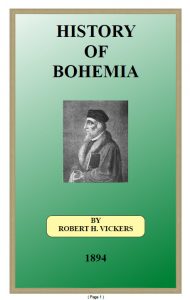THE Parliament assembled together on the day in February, to which they had been prorogued; and the King, in a very insinuating speech, endeavoured to seduce them into an approbation of what he had already done, and of what he further desired to do in favour of the Roman Catholics.
Download Category: History
Secret History – Court of George III
THE source from whence this Work proceeds will be a sufficient guarantee for the facts it contains. A high sense of duty and honour has prompted these details which have for many years been on the eve of publication. It will be worthy of the perusal of The Great because it will serve as a mirror, and they who do not see themselves, or their actions reflected, will not take offence at the unvarnished Picture—it may afford real benefit to the Statesman and Politician, by the ample testimony it gives, that when Justice is perverted, the most lamentable consequences ensue; and to that class of Society whose station is more humble, it may unfold the designing characters by whom they have so frequently been deceived. They only are competent to detail the scenes and intrigues of a Court, who have been most intimately acquainted with it, and it must at all times be acknowledged, that it is a climate not very conducive to the growth of Virtue, not very frequently the abode of Truth—yet although its atmosphere is so tainted, its giddy crowd is thought enviably happy. The fallacy of such opinions is here set forth to public view, by one who has spent much of her time in the interior of a Court, and whose immediate knowledge of the then passing events, give [iv]ability to narrate them faithfully. Many, very many, facts are here omitted, which hereafter shall appear, and there is little doubt, but that some general good may result from an unprejudiced and calm perusal of the subjects subjoined.
Queen Isabella of Spain
This book attempts to tell the amazing story of Queen Isabel of Castile as it appeared to her contemporaries, against the blood-spattered background of her own times. It is a tale so dramatic, so fascinating, that it needs no embellishing or piecing out with the wisdom— or folly— of another age. To probe the inner cosmos of men and women long dead by the light of a pseudo-science, to strip away with pitiless irony all noble or generous appearances, to prize open with an air of personal infallibility the very secret hinges of the door to that ultimate sanctuary of the human conscience which is inviolable even to father confessors— that is an office for which I have neither the taste nor the talent; and if I have fallen unawares into any such pitfalls of the devils of megalomania, I beg forgiveness in advance. Under the naïve rhetoric of the fifteenth-century chroniclers there is ample material for what Joseph Conrad called rendering the vibration of life and Michelet called the resurrection of the flesh, without resorting to subjective interpretation. And it has seemed all the more imperative to follow the sources objectively and let them speak for themselves as far as possible, because, strange as it may appear, the life of Columbus’s patron and America’s godmother has never been told completely and coherently in our language.
Lord Kitchener’s Murder
THE SUDDEN DEATH OF LORD KITCHENER on June 5th 1916, caused as big an international stir, as that of President Kennedy and Princess Diana, and just as everyone remembers where they were when the news was announced of their deaths, so it was with Kitchener.
At the start of WWI Horatio Herbert Kitchener was recalled home from Cairo, to become secretary of state for war, Kitchener was seen as a hero, winner of battles in the Sudan, India and the Boer war.
Murder of Lord Kitchener
ON 13th May Kitchener received a personal invitation from the Czar to visit Russia and advise on military matters. On 4th June Kitchener left the War Office and took the train to Scapa Flow arriving on the morning of the 5th and going aboard the Cairnbig from Dulk. In the afternoon he crossed over to the Hampshire which was to convey him to Russia. At a few minutes before 5 PM she slipped anchor and sailed with as escort of two destroyers towards the western cost of the Orkneys. At 7 PM the escort was detached because of high seas and 40 minutes later the Hampshire struck a mine laid by a German U-Boat. Within a quarter of an hour the ship had sunk and with a Field Marshal Lord Kitchener and a large part of the crew. Although bodies were subsequently washed up, that of Kitchener was never found. He was probably pulled under by the weight of his greatcoat which he wore since he felt the cold.
King Arthur Facts
A major source of historical information is in the Welsh Annals. This information is set out in the form of brief notations of major events listed by the years. We get Year 1, then Year 2, then Year 3, and so on and on. The problem is simply one of “when was year one”. This has been dealt with in typical academic incompetence or more likely political deviousness deliberately designed to obscure and confuse.
A famous letter was sent from Britain to Gaul and the time of this Communication was crucial to setting the date of Year 1 of the Welsh Annals. The letter was sent to Agitius according to Gildas, and to Aganypys or Aganipus in the Khumric Welsh Histories. There is in fact only one candidate for the recipient of this letter, and it would be hard to mistake him.
History of Wales
WHEN the Roman empire, under Valentinian (left) the younger, began to decline, and became sensibly unable to repress the perpetual incursions of the Goths, Huns, Vandals, and other barbarous invaders, it was found necessary to abandon the remotest parts of that unwieldy body, and to recall the Roman forces that defended them, the better to secure the interior and the provinces most exposed to the depredations of the barbarians. And in this exigency of the Roman affairs, Britain, as lying far remote from the heart of the empire, was deprived of the Roman garrisons ; which, being transported into Gaul upon more urgent occasions, left it naked and exposed to the inveterate cruelty of the Scots and Picts: for no sooner had they understood of the departure of the Romans out of Britain, and that the Britons were to expect no further help from the empire, but they descended in greater numbers than formerly, and with greater courage and expectation, being now rid of the fear they entertained of the Roman legions, who always used to hinder their progress and to prevent their incursions into the Roman province. The Britons, perceiving their ancient and implacable enemies falling upon them, and finding themselves far too weak to repel their endless devastations, they, with a lamentable narrative of their own miseries and the cruel oppressions of their enemies, sent over to Gaul, imploring aid of Ætius, prefect of that province ; who, being moved with the deplorable condition of their province, dispatched over a legion under the command of Gallio, which unexpectedly surprising the Scots and Picts, forc
History of Paganism in Caledonia
THE identity of idea and design which reveals itself in the ancient paganism of Asiatic nations, as well as the similarity of the symbols of the stone monuments of Asia with several of those on the sculptured stones of ancient Pictavia, indicate a line of enquiry by which it is believed that the obscurity resting over the earliest monuments and history of Western Europe may, in a certain degree, be removed. With the assistance of our present knowledge of Eastern customs and usages, which has been much extended in modern times, the interest of these peculiar symbols is increased, as they appear in the North-east of Scotland, carefully delineated on the circles of Celtic boulders, usually called Druidical.
History of Bohemia
Whatever may be the success of this book, the labour expended in the preparation of it has been very great. The unhappy land whose story is here recorded had, until very recently, almost sunk out of observation, and its very name had become understood more as a metonym for literary vagabondage than as expressing the dwelling place of a once great nation. The history of Bohemia is totally unknown to the great majority of English speaking people. But the presence of a large body of Bohemians in the United States, the association of some members of that nation with the very foundation of the American colonies and their experiences in Europe identical with those of the other pioneers of our Commonwealth, render the history of Bohemia’s career essential to the education of every American. Citizens will perhaps hear with incredulity the assertion that the civil constitution of Bohemia is the parent of that of England and of our own. Well may the Americans study the story of centuries’ struggle to maintain and transmit an institutional system, almost identical with that of the United States, during those dark ages when almost all semblance of a recognition of popular institutions had elsewhere disappeared
Exposing The Falsification of Welsh-British History
THE TWO MAJOR BRITISH KINGS CALLED ARTHUR, King Arthur I of the late 4th Century AD, and King Arthur II of the 6th Century AD, were both very real, very powerful, and remarkably successful Kings of Britain. One was Arthur son of Magnus Maximus and Ceindrech daughter of Rheiden, who was born around AD 344 and who died around AD 400.
This Arthur conquered all of Western Europe between AD 383-388, and captured Paris, the stronghold of the Lady St Genevieve – who becomes the Lady Guinevere of the confused Romantic Arthurian tales we have all come to know.
The other was his direct sixth generation descendant Arthur II son of King Meurig (Maurice) and Queen Onbrawst, born c AD 503 and died AD 579. Both copiously recorded. The deliberate mistake was to weld these two powerful kings into one 250 years old impossible “King Arthur” who fought the Romans and killed their Emperor Gratian at Soissons in AD 383, and who then fought the Jutes, Angles, Saxons, and others in the mid 6th Century.
All this is well recorded and was well known by British scholars, but most modern academics do not grasp these simple foundation facts, because they do not read the ancient manuscripts, and have instead become indoctrinated into a belief system based on incorrect information.









